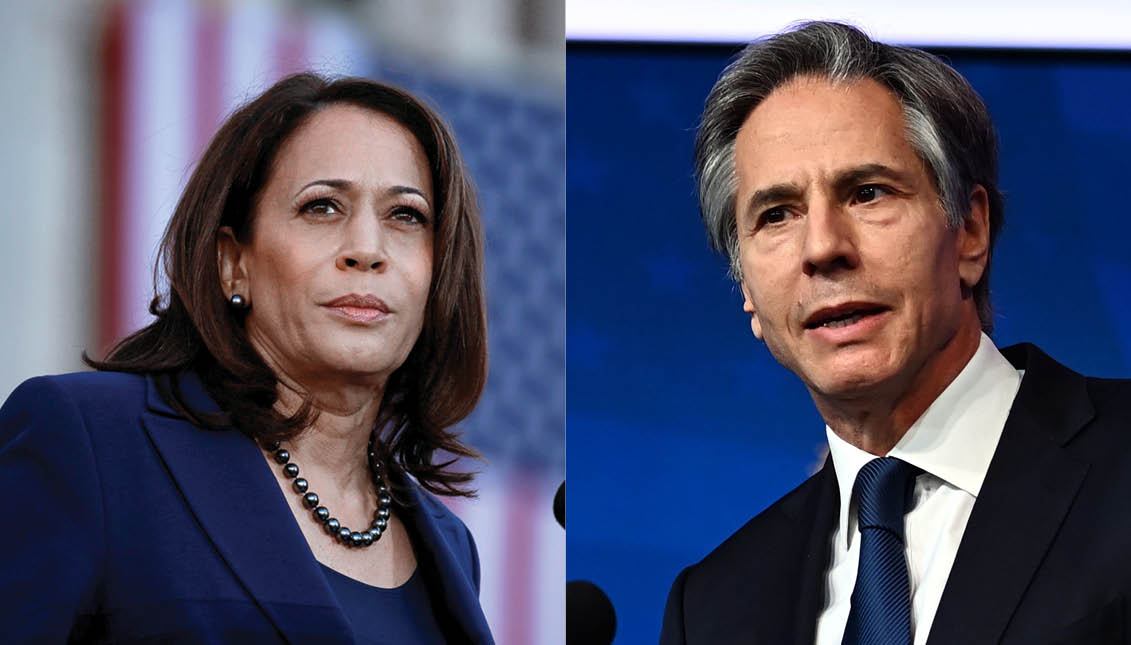
Biden’s Cabinet lays out its agenda for Latin America
Senior government officials made sure to remind their neighbors to the South about their commitment to unified prosperity for the Americas.
The Council of the Americas (COA) held its 51st annual Washington Conference on the Americas event on Tuesday, May 4, and it was the second time it was set up virtually.
The conference was designed to have senior U.S. government officials, regional experts and political leaders from Latin America and the Carribean discuss their cooperative solutions to problems across the Americas.
“Democratic, Prosperous, Secure: Restoring a Partnership for Sustainable Growth” was the title of this year’s conference.
Every member of President Joe Biden’s administration who addressed the council spoke about different regional priorities they want to tackle.
Julie J. Chung, the Acting Assistant Secretary of State for Western Hemisphere Affairs, was the first speaker of the event.
The experienced foreign affairs officer touched on how countries south of the U.S. have been particularly hurt by the coronavirus pandemic.
“Latin America and the Carribean account for just 8% of the world’s population, but have suffered nearly 29% of all the confirmed COVID-19 deaths. The IMF estimates the region’s economy contracted by 7% in 2020, the most severe among all the world’s regions,” she said.
Multiple factors can explain the drastic toll that the pandemic has taken on the region, one is that these are developing countries with significant informal economies.
A 2019 report from the United Nations’ Economic Commission for Latin America and the Carribean shows that 30.8% of the region lives in poverty, while over 11% lives in extreme poverty.
Foreign debt obligations have also limited the number of social safety nets that these governments can fully fund or implement to assist their residents, who have not been working due to closing industries.
Argentina’s foreign debt obligations to the International Monetary Fund alone totals $45 billion, and this is more than 10% of their gross domestic product in 2019.
With an economic contraction last year and a slow recovery expected for 2021, it will be difficult for the government of Alberto Fernandez to overcome the burden.
Leaders have to choose between helping their people now or financially wrecking their country for decades to come.
Vice President Kamala Harris has held multiple roles throughout her public service, but she has not been a major voice for any foreign policy matter until now.
The former senator has been tasked to lead diplomatic efforts to the Northern Triangle in Central American to stem mass migration coming from the area.
Harris showcased her knowledge of these international relations in her speech in Tuesday's conference.
“Our relationship with Latin America is bigger than trade and our relationship is incredibly complex and at times has been incredibly complicated. Today, I want to make clear that our administration firmly believes in the potential of the region and in the power of the people of the region,” the vice president said.
In saying this, she acknowledged that just because the U.S. and Latin America are neighbors does not mean that they have always been allies. Her segment also demonstrated that America is ready to seriously invest in the region.
The Trump presidency saw lower investment in Latin America from the private sector and cuts to monetary aid from the U.S. to countries in need.
Reuters reported that if Mexico, America’s largest trading partner, is excluded from calculation, then China has continued to overtake the U.S. as Latin America's biggest trading partner since 2018.
In her speech the vice president reminded audiences about an additional $310 million aid package that was announced last week that will be sent to the Northern Triangle. She also hopes that corruption in the region dissipates, so countries become more stable and lure more foreign investors who will bring jobs to the area.
“Latin Americans are shaping their own future. They are writing their own story. They hold the pen. As I see it, our role is to read those words, take them in and help however we can as Latin America writes its own next chapter,” Harris emphasized.
This rhetoric is a radical shift from the agenda the U.S. government has had towards the internal conflicts in the region. Since these countries gained independence from European powers, the U.S. has acted as a perennial figure for them by constantly intervening in their affairs.
RELATED CONTENT
Examples of this range from the Central Intelligence Agency funding operation to overthrow Chile’s democratically-elected president Salvador Allende in 1973, to the Trump administration coordinating an international effort to have multiple world leaders recognize Juan Guiadó as Venezuela’s legitimate leader.
But isolationism from Latin American internal matters has not been seen under the Biden administration.
The vice president used part of her speech to say that the U.S. needs to respond to the Salvadoran parliament, where popular president Nayib Bukele’s party recently obtained an absolute majority, voting to unseat members of their Supreme Court.
Secretary of State Antony Blinken has also commented on several events occurring in Latin America since joining the Biden administration.
On March 27, he tweeted that he was concerned about Bolivian prosecutors arresting Jeanine Áñez, former interim president, and nine members of her cabinet due to their links to the 2019 coup against socialist president Evo Morales.
We are deeply concerned by growing signs of anti-democratic behavior and politicization of the legal system in Bolivia. The Bolivian government should release detained former officials, pending an independent and transparent inquiry into human rights and due process concerns.
— Secretary Antony Blinken (@SecBlinken) March 27, 2021
Calling for due process and for these figures to have a trial in front of an independent judiciary is not controversial, but Blinken is leaving out important details about the people he is defending.
When Áñez led Bolivia she launched terrorism charges against Morales while he was in Bolivia. The Human Rights Watch said that this action was politically motivated.
The interim leader was also found to have committed several human rights violations under her reign. These violations include restricting free speech and ordering state forces to fire at non-violent indegeanous protests.
In the Head of State’s address to the conference, he used the platform to advocate for democracy in the region.
“Let’s speak with one voice to urge the government of Haiti to organize free and fair elections by the end of this year and the government of Nicaragua to carry out the electoral reforms necessary to ensure free and fair elections this November,” he said.
Many are calling upon the Biden administration to end its support of Haitian President Jovenel Moïse’s plan to hold elections this year because of him unilaterally naming the electoral council and rising gang violence in the country.
The Nicaraguan reforms Blinken was referring to deal with President Daniel Ortega’s party, who has the overwhelming majority of seats in the National Assembly, giving him the ability to unilateral power to declare citizens “terrorist” or “traitors to the homeland” and bar them from running for president.
This was passed last December, and it bans opposition leaders who organized large scale protests against the regime in 2018.











LEAVE A COMMENT: